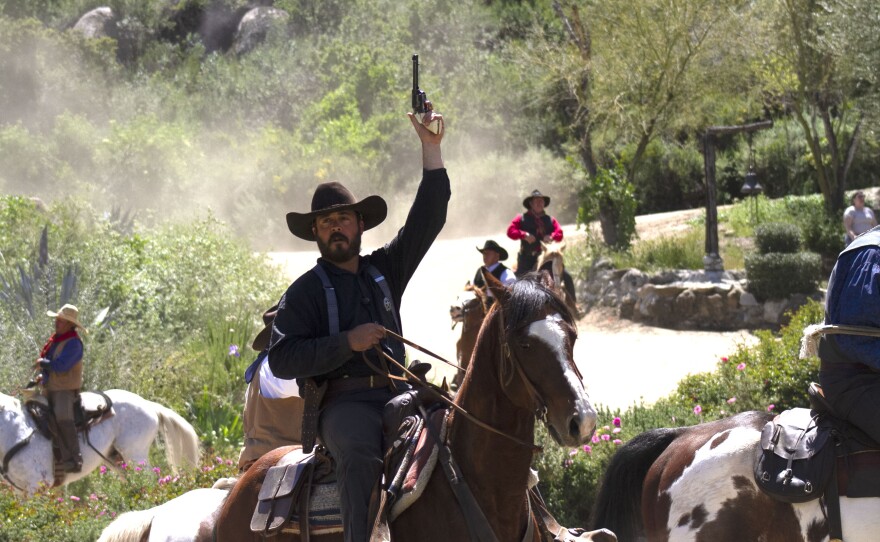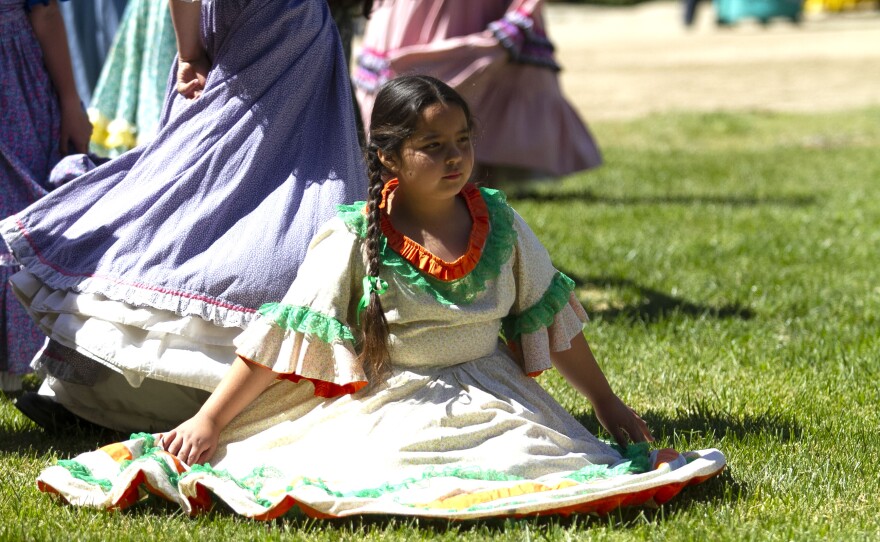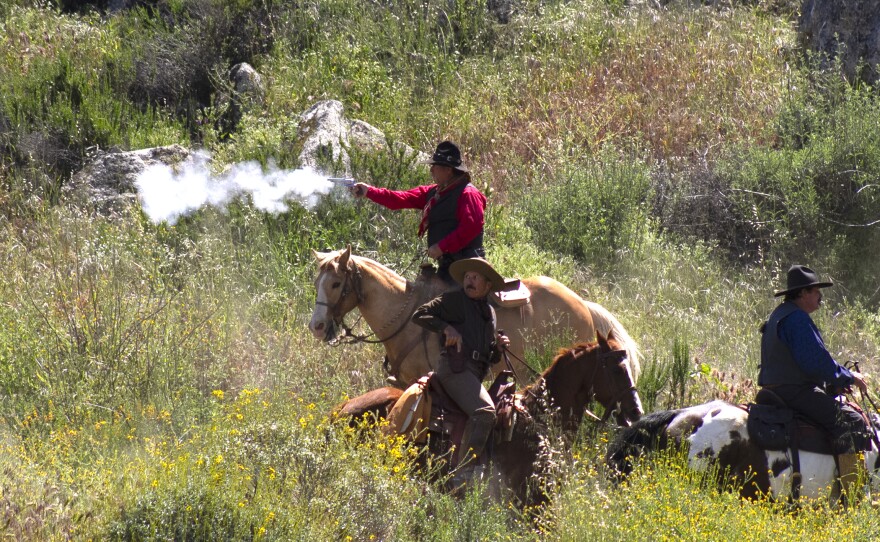
Every year, more than 300 volunteers of all ethnicities, backgrounds and ages come together in Hemet to travel back in time — to the late 1800s, when Native Americans weren't treated as equals.

The volunteers are staging the annual Ramona Outdoor Play. It's no ordinary play or love story; it's a saga set in the days when Temecula belonged to the Native Luiseño People.

The community production has been staged for 100 years, with only a couple of breaks caused by the Great Depression, World War II and most recently, COVID-19.

On April 20, nearly 4,000 fourth graders filled the Ramona Bowl, Hemet's natural amphitheater that was once a sacred Native American site, and is the home of the Ramona Outdoor Play.
"This is a tradition for over 60 years. We have a special performance for the fourth graders of the Hemet — San Jacinto Valley," said Dennis Anderson, the artistic director of the Ramona Outdoor Play. "They're studying California history."

He said it's not only the official play of California, "It is the longest-running outdoor drama in the history of the United States (from) 1923 to April 2023."

The play is based on the 1884 novel "Ramona" by Helen Hunt Jackson, written to call attention to the injustices suffered by Native Americans.

The tragic love story intertwines fictional elements with the real horrors of history. There was a real "Ramona," whose last name was Lubo. Her husband, Juan Diego, was a member of the Cahuilla tribe and was killed by a man who accused him of stealing a horse. In the play, "Juan Diego" became "Alessandro."

The play also portrayed the eviction and razing of a Luiseño village in Temecula at the hands of a posse riding with the sheriff of San Diego County, which Temecula was a part of until the creation of Riverside County in 1893.

Like many locals, Anderson's family has made the play a family tradition for three generations.
"My family moved here in 1956, and my dad was in the chorus by April. My mom ran the ticket booth ... and it became part of our life every spring," he said. "It's made me, I want to say a better person, but oh, I understand much more of the terrible suffering of Native Americans."

"It's an honor to come here," said Bird Singer Steve Alvarez. He is one of about 50 Native Bird Singers and dancers who perform in the play.
He said their performance sends a message to those who witnessed the rituals handed down for generations. "This play gives us a chance for our Native voice to come out and show people that we're Native, and no matter what ... we're still strong and we're still here."

Ruth Duran was born and raised in Hemet. She has deep roots in the ancient land. "My great, great, great, great grandmother was one of the first Indians on the reservation."
Her family has been a part of this play for over a decade. This year her niece, her niece's son, and her nephew were a part of the performance.

But this year she was part of the staff who came with a fourth grade class, and she was encouraged by the reactions during the play. "Wow, they got it! Because they're like, 'Wow, the Indians were treated bad ... we didn't know that,'" she said.

"I always knew that this is a story that needed to be told and still needs to be told," said Kayla Contreras, who's played the title character for six seasons. She grew up in Hemet, and said that when she watched the show as a child, she knew she was destined to play Ramona — a role that has also been played by actresses Anne Archer and Raquel Welch.

"I immediately was drawn to the story, the character," said Contreras. "And I told my mom, I said, 'Hey, I'm going to do that one day.'"
To Contreras, this is more than a performance. It's something she feels in her soul and transcends time.

"I can completely take some of those lines out of the show out — of context from the historical aspect of it. But really just feel it here and be like, 'it's still going on, it's still happening,'" she said.
Contreras and her co-star Eli Santana ("Alessandro") are the only paid cast members in the production, and both have Native roots. Contreras is Yaqui on her father's side.

Santana said he recently discovered his Native background. "Actually doing this play has been amazing, just looking into my history and my past," he said.
He feels his past and present collide in moments throughout the play. "Growing up in Oceanside, the character that I play — he learned to play the violin at San Luis Rey, and I grew up going to San Luis Rey," he said, adding that it grounded him to the character and drove his performance. "When you grow up you just think of like, 'Oh, that's the name of the street or this town.' And then to hear that it came from something and it meant something ... it was just amazing, and I felt like part of something bigger than me."

Santana said it also made him excited to share the story and history, especially when people get it wrong. "(They say) 'Look at that Pechanga, oh that’s the casino right there, or Temecula by the freeway — the 15.' I’m like, 'No this is history right here and it’s there because of a tragedy, basically.'"
Santana said Ramona's message is universal and somehow remains relevant 100 years later.

"We’re going to do a time capsule for 100 years from now, and I hope that (the play is) going just as strong, but hopefully it’s more of a reminder of when people were less tolerant and not something that is ringing true 100 years from now, like it is for us," said Santana.
"This is about love," Anderson said. "It's about Ramona's love for her husband, for her baby, for her people."
Anderson also said the play is about treating everyone with dignity and respect, and something everyone should experience once in their lifetime. "There's a very serious message and there's a kind of a tragic ending, but this is California."
The play runs on weekends through May 7th at the Ramona Bowl in Hemet.





